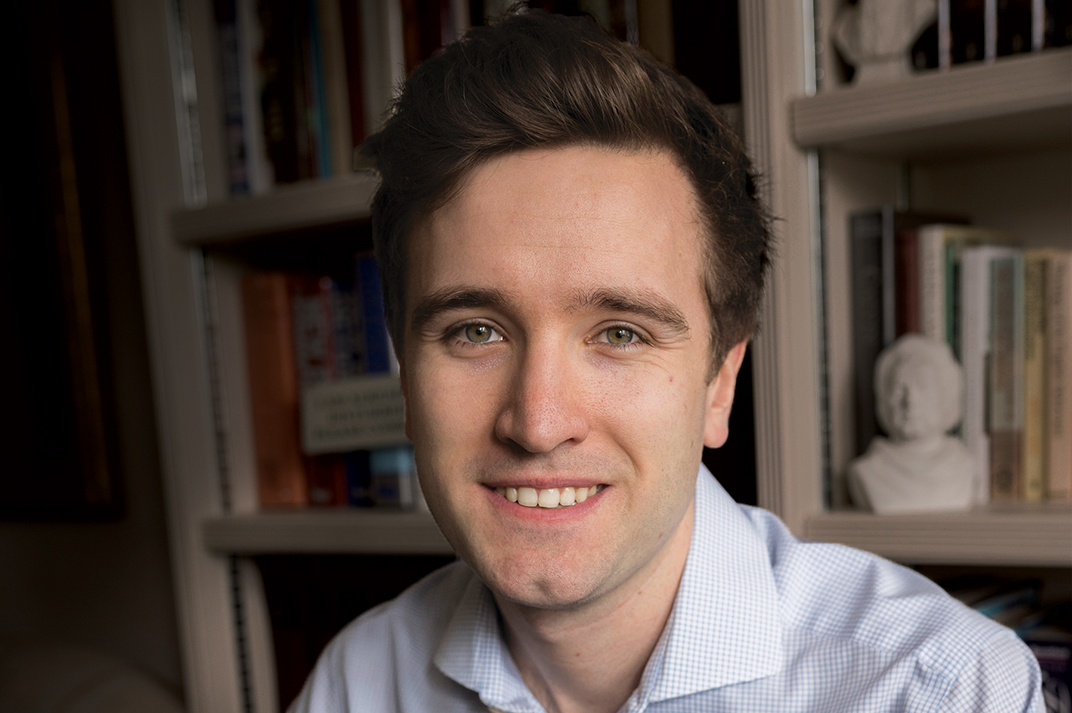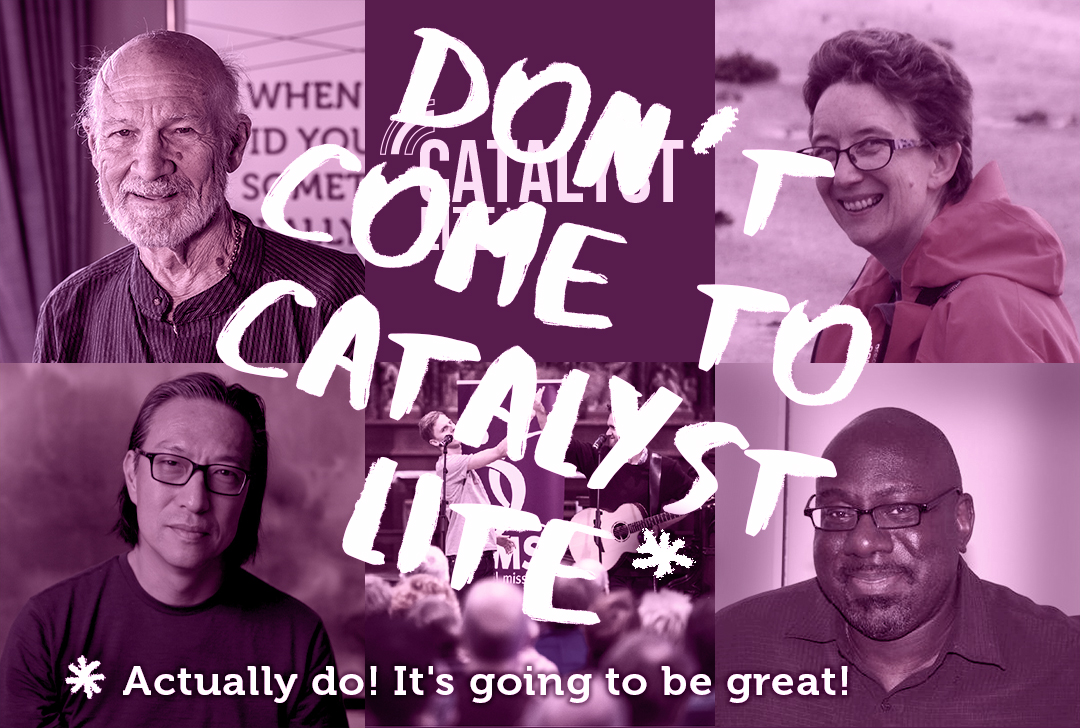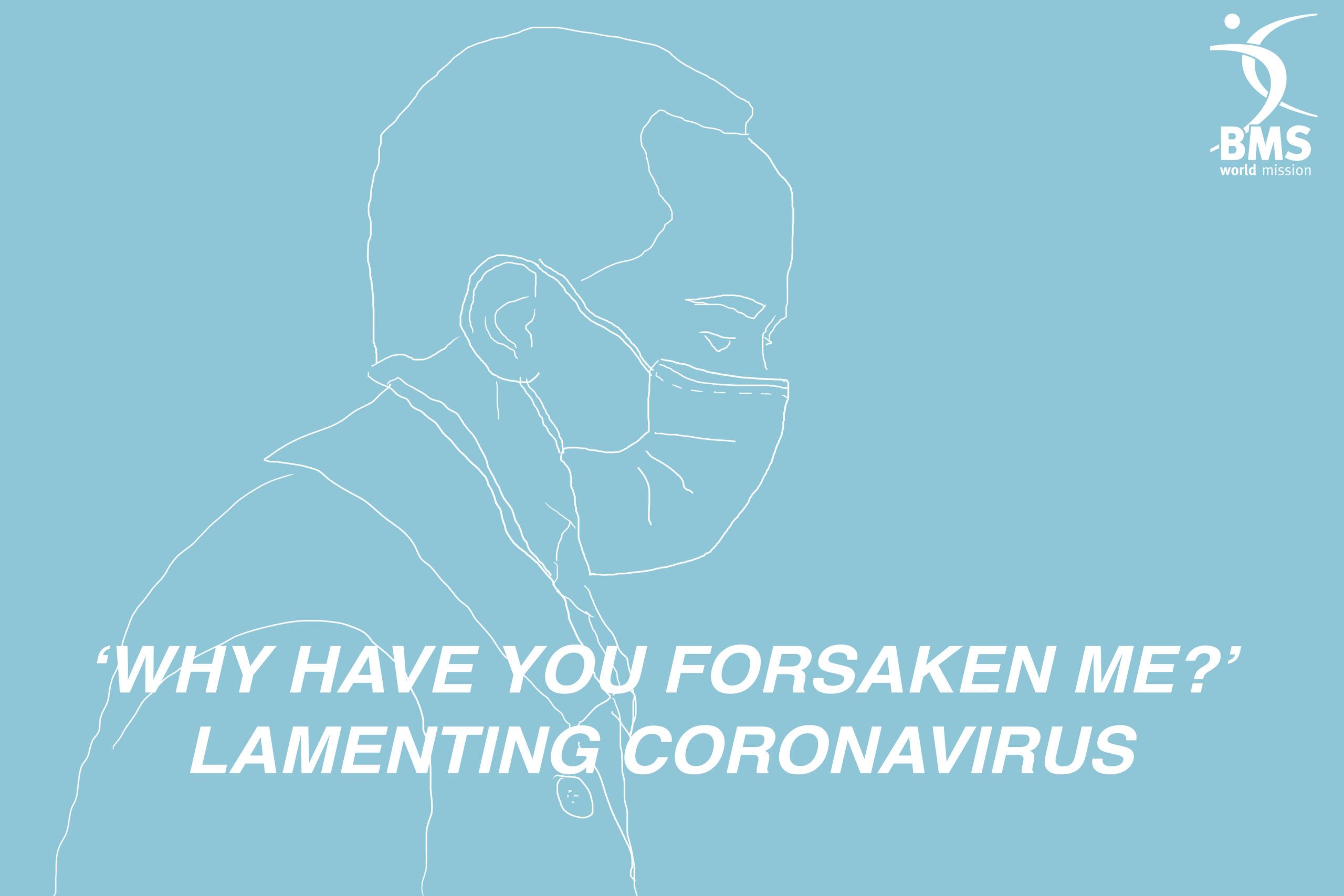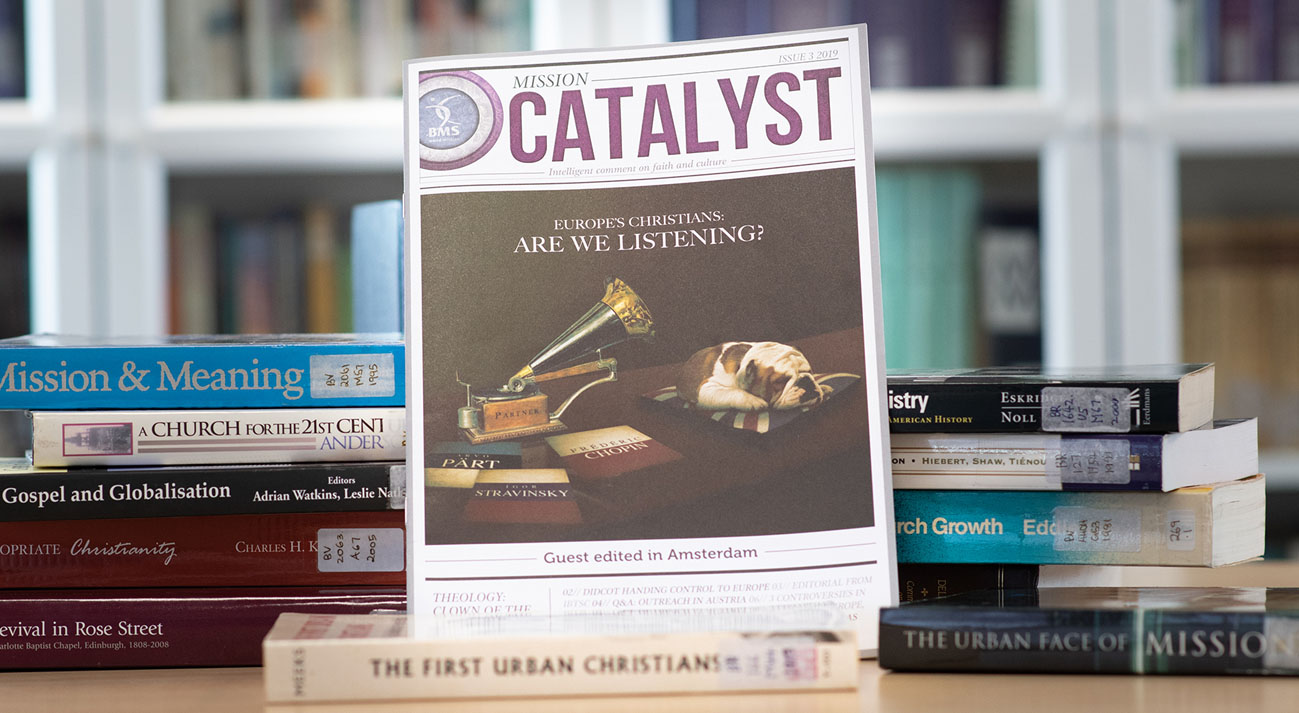Justin Welby:
A Mission Catalyst Q&A
Anglicanism’s most powerful person on power dynamics between the West and the rest.
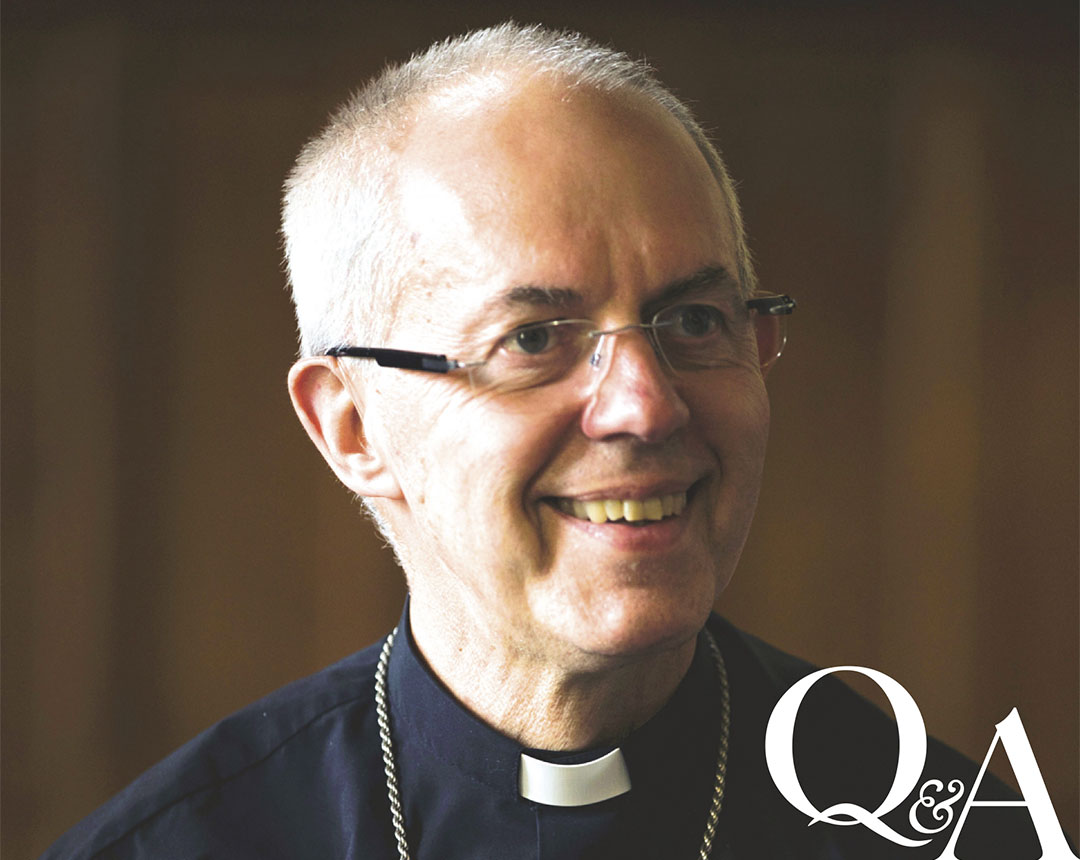
Do you recognise the contention that it’s time the Church in the West and the North listens better to the Majority World Church, or do you think that’s a red herring?
It’s certainly not a red herring, whatever it is, but listening isn’t enough. We have to change. This has been a real thing of mine for a very long time, most of my life, since being greatly influenced by Kenyan Christians in the 1970s. But in just the last few months I’ve been enormously struck by Robert Heaney’s book called Post-Colonial Theology. Anyone who’s concerned about differentials of power should read that book. It’s uncomfortable reading. A very powerful book. The point is that we’ve moved from a point of straightforward colonialism through to saying: ‘It’s a very good thing that local people are made bishops’, through to where we are now which is to say: ‘We must listen to the Global South.’
We love our sisters and brothers in the Global South, provided they agree with us. If they don’t agree with us, then to quote Bishop Jack Spong in the 90s: “Well then they’re just one generation away from barbarism.”
Wow. That’s horrendous.
It’s the other side of horrendous. I mean nowadays, I think it would genuinely be called racist, and quite rightly. I’ve had a theologian in this country say to me: ‘Why are you so concerned about Global South theology? There aren’t any serious theologians in the Global South.’ So, it’s a long answer, but it’s a very profound question, of course we’ve got to listen. We could go a long way beyond listening. We’ve got to allow ourselves to be changed.
We could go a long way beyond listening. We’ve got to allow ourselves to be changed.
How do I listen to my Ugandan brothers when they’re pro-death penalty for homosexuality or some of my brothers and sisters in India who don’t believe women should speak in church? How do we negotiate that without enforcing a new liberal imperialism?
Well, we do enforce a new liberal imperialism. We’re there already. And not just within the Church. It’s part of the overall way in which the global system runs. Many of those things are really good things, let’s be clear. I’m not saying it’s wrong to oppose the death penalty for homosexuality, I’m not saying it’s wrong to oppose all kinds of female mutilation. But first of all we have to know our own history.
It’s a century since General Dyer’s troops opened fire on an unarmed crowd and killed probably over a thousand people. The world trade system, the world economic system are Global North controlled. And the theology is simply part of that system. So, how do we listen? We recognise the situation we’re in. We know our history and we don’t say: ‘oh well, the Global South is right because they’re the Global South.’ We must find ways of not arguing from a position of power and leverage with the implicit threat that if you don’t agree with us, you can’t participate.
Should the aim be to try and strip cultural context from our theology or to try and make it ever more contextual but in different modes?
To strip cultural context from our theologies is like saying: ‘Should the aim be to levitate?’ It isn’t a physical possibility, it’s a not a psychological possibility either. The longer this goes on, the more I think about it, the more I am deeply, deeply aware of my own inset prejudices. Deeply felt, right down in the depth of my being. And we can’t strip our theology.
I think like a middle class 63-year-old English man. That’s how I think, from my particular background and history – I can’t help thinking like that, there’s no switch you can turn. But I can be aware that I think like that.
Subscribe to Mission Catalyst today to hear from the greatest Christian minds of the modern day, three times a year, completely free!
1 Peter 5 says, ‘Humble yourselves under the mighty hand of God so that in due time he may exalt you.’ Humble yourself so that he exalts you. And then it goes on to say, and it’s all part of the same sentence, ‘cast all your cares on him, for he cares about you’. Now the second part is as important as the first part – we only ever quote the first part, or the second part separately – but they go together. What does humbling ourselves mean? It means giving the problems to God. As Christians we say: ‘I can’t cope with these folk, because everything in me says they’re wrong. So, God, how am I going to deal with this?’ We’ve got to take it to God. It’s not just about being able to pray together and say ‘amen’ and sing happy songs together. We don’t want Kumbaya Christianity, we want Christianity that deeply opens up our gut and changes our inside.
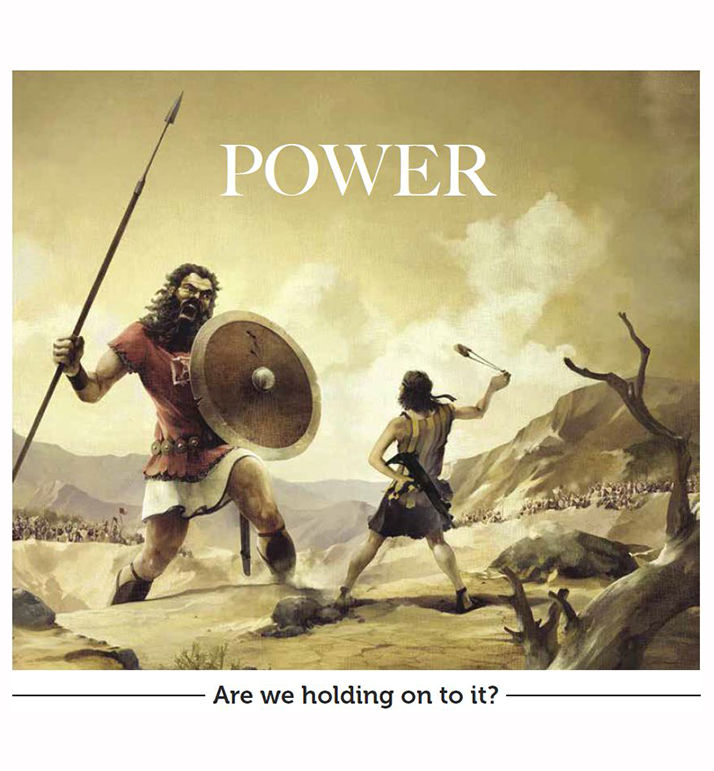
Does western liberal (for want of a better word) Christianity have something to offer the rest of the world? And what is it?
At its best it’s a humble and confident engagement with the world as it is, not hiding in a bubble and seeking to make the world as we’d like it to be. In other words, it says: ‘Well, this is reality, how are we going to deal with it?’
You know, you mentioned the issue of people’s sexuality… Some people are gay. Let’s not say there are no gay people. Let’s say some people are gay. They are human beings within Christ’s eyes, they have the same human dignity as every other human being on the face of the planet. So, what are the consequences for that? How do we think this through with our sisters and brothers whose cultural instincts – put there by us, very often, the law was put there by us, just let’s be clear, in our history – are very different? I think at its best, liberalism says this is the structure, this is the reality. This sense of saying: ‘my conclusion is right and you ignorant people have to learn how to be less ignorant,’ which isn’t said explicitly but it is implicitly, is liberalism at its worst. You find it in every part of the Church, in every theological approach.
Can evangelicalism survive this new world?
Christianity will survive. I’m not a party person, I don’t carry a party card. To describe yourself nowadays as an evangelical means you have to say: ‘yes, but I’m not one of that sort, or of this sort’. I’m a Christian. I’m an orthodox Christian, for whom the Bible, properly interpreted, is my final authority, in matters of faith and praise. That’s what I am. Will that survive? Yes, absolutely! And there will be a load of arguments about what properly interpreted means, but would you call it evangelicalism? Some evangelicals say, ‘yes of course it is,’ others will say, ‘well no, that’s not real evangelicalism because it doesn’t tick this box or that box’, and liberalism will be the same and Anglo-Catholicism will be the same and traditionalists will be the same.
The labels are less important than whether we love and serve Jesus Christ. Do we come back for Jesus Christ, are we humbled by the beauty and glory and grace and love that reaches out to us every morning as sinners and lifts us up?
Does institutional power always necessarily have to corrupt? Or can it be useful for making change?
Oh it can certainly be useful for making change. ‘Corrupt’? I think I would go for the word ‘corrode’. I think it’s corrosive. I think what it can do is like rust, it weakens the structure, and in the end the structure fractures. But it takes a while.
How hard is not leveraging your power when you’re the head of the Anglican Communion?
First of all, it’s complicated. Hard is probably the wrong word. It is very complicated.
There is power and you can misuse it. You learn to be extremely careful about what you say. And to regret when I’m not very careful about what I say.
You’ve got to constantly hold yourself back, and rather than saying, ‘that sounds like a good idea, we’ll do that’, you say: ‘that sounds like a good idea, I need to ask a dozen people what they think’. And every now and then, just very occasionally, the whole lot will say, ‘that’s a really bad idea’, and I say: ‘I’m going to do it.’ And then I’m usually proved wrong. Jesus washed feet, if we’re not washing feet, we’re not doing the job.

Looking for more Mission of the Mind?
Time to get out the diary and block out 9-10 October. With headline speaker Stanley Hauerwas, American theologian, ethicist, and public intellectual, as well as a panel of today’s top speakers, you won’t want to miss Catalyst Live 2020!
It’s your chance to think about the world, with the world. Catch talks delivered by the best Christian thinkers around and together, tackle the toughest issues Christians face today.
To be first in the know about bagging your ticket, sign up to the BMS World Mission email update.
Interview by Jonathan Langley.
This interview first appeared in Mission Catalyst, Issue 1 of 2020.
Interview conducted at Greenbelt Festival.



